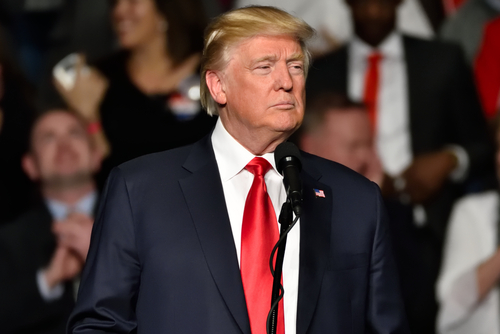
They’ve Changed the Rules – AGAIN!
Kickstarter now wants backers to pay extra fees for projects they’ve already funded – Trump tariffs are the excuse, but you’re footing the bill either way.
At a Glance
- Kickstarter is releasing a “Tariff Manager” tool allowing project creators to add surcharges to US backers after campaigns have ended and been fully funded
- The platform claims this is necessary to help creators offset costs from Trump-era tariffs and import fees
- Backers who refuse to pay the extra charges must contact creators directly to arrange refunds or alternative solutions
- While large campaigns like Peak Design can absorb the tariff costs, smaller projects may struggle to deliver without these additional fees
Pay Up, Again: Kickstarter’s New Fee-Adding Tool
Just when you thought the deal was done, Kickstarter has found a way to reach back into your wallet. The crowdfunding platform is introducing a “Tariff Manager” tool that will let project creators tack on extra fees to backers with US shipping addresses – even after campaigns have been fully funded and closed. That’s right, you agree to back a project at one price, and then after it’s successfully funded, they can come back and ask for more money. The audacity is breathtaking. This new surcharge system is supposedly Kickstarter’s response to the increased import costs from tariffs established during President Trump’s administration.
“We understand that asking backers to pay an additional fee — especially after a campaign has ended — can be sensitive” – Kickstarter.
The Convenient Tariff Scapegoat
Let’s be perfectly clear: this “Tariff Manager” is nothing more than a mechanism for creators to change the price of a product after you’ve already paid for it. While Kickstarter conveniently blames Trump’s tariffs for this move, the reality is that crowdfunding has always been a risky venture where creators frequently underestimate costs. Now, instead of forcing creators to honor their commitments and manage their budgets properly, Kickstarter is giving them permission to simply pass unexpected costs on to backers who thought they had already sealed the deal. This sets a dangerous precedent that fundamentally undermines the contract between creator and backer.
“Over the past few weeks, we’ve been hard at work developing tariff-relevant resources to support our community. From guidance to help creators navigate rapidly changing policies, to tips on shipping logistics, and even information to help backers better understand the challenges creators are facing.” – Kickstarter.
Different Rules for Different Creators
Interestingly, not all creators are jumping at the chance to squeeze more money from their backers. Larger campaigns like Peak Design’s Roller Pro Carry-On have explicitly stated they won’t be adding any tariff surcharges. They’re eating the costs themselves – as they should. But this highlights an uncomfortable truth: this tool will primarily benefit smaller creators who failed to properly budget their projects. While I sympathize with small business challenges, changing the terms after funding closes is simply bad business. If tariffs were a known factor during campaign planning, they should have been factored into the original pricing.
“made the decision to not add any additional tariff charges to your pledges” – Peak Design’s Roller Pro Carry-On.
The Backer’s No-Win Situation
So what happens if you refuse to pay this newfangled tariff surcharge? According to Kickstarter, you’ll need to contact the creator directly to work out an alternative solution, which might include modifying your pledge or requesting a refund. But let’s be honest – after waiting months or even years for a project to be fulfilled, many backers will begrudgingly pay up rather than lose their investment entirely. It’s a classic “heads I win, tails you lose” scenario that puts all the power in the creators’ hands while leaving backers to foot the bill for poor planning or changing economic conditions.
“Creators continue to launch, adapt, and find success on Kickstarter, even as the external landscape shifts. We know creators are navigating a lot right now, and we’re focused on giving them the tools and support to adjust as needed.” – A spokesperson for Kickstarter.
Undermining Trust in Crowdfunding
The fundamental problem with Kickstarter’s Tariff Manager isn’t just the extra cost to backers – it’s the dangerous precedent it sets for the entire crowdfunding industry. When you back a project, you’re doing so based on the terms presented during the campaign. If creators can retroactively change those terms after securing your money, what’s stopping them from adding other fees for different “unexpected costs”? This move fundamentally erodes the already fragile trust between creators and backers, turning what should be a mutually beneficial relationship into one where backers increasingly look like ATMs ripe for additional withdrawals.




